Home>Garden Essentials>What Happens When You Eat Pomegranate Seeds
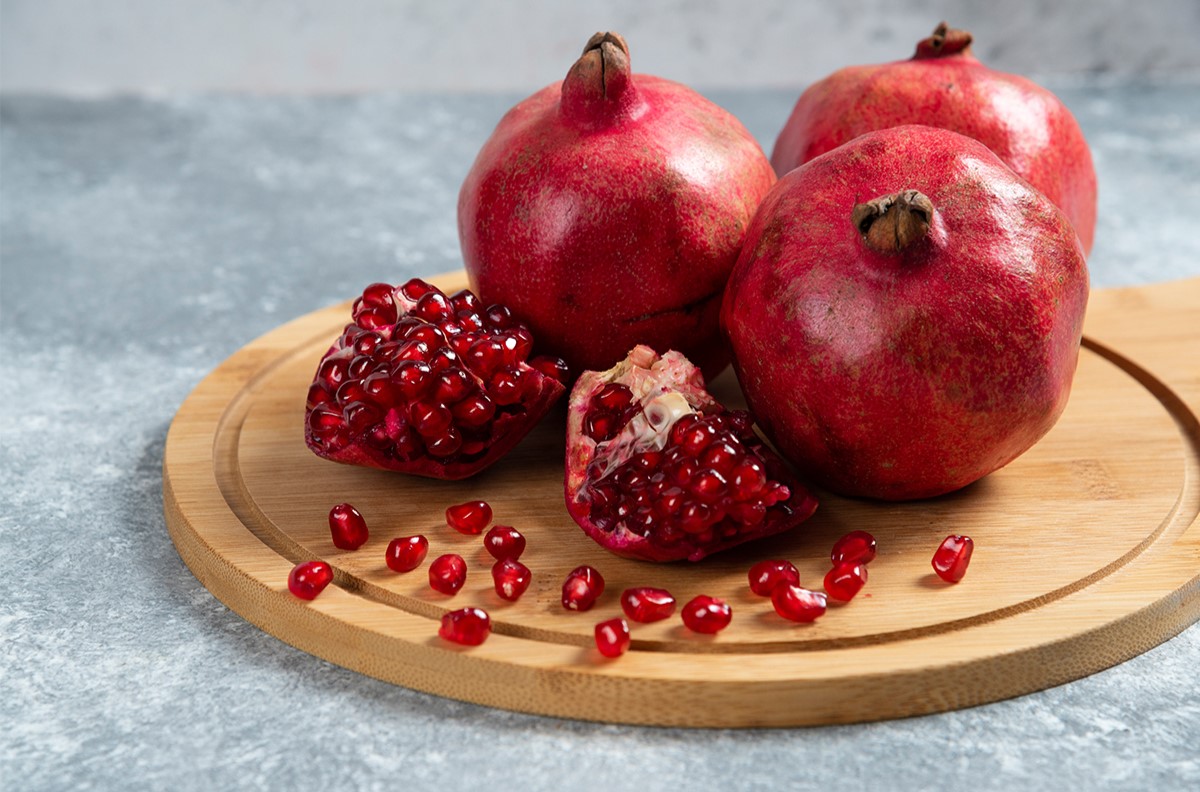

Garden Essentials
What Happens When You Eat Pomegranate Seeds
Modified: March 15, 2024
Discover the benefits of eating pomegranate seeds from your own garden. Boost your health and indulge in the delicious taste nature has to offer.
(Many of the links in this article redirect to a specific reviewed product. Your purchase of these products through affiliate links helps to generate commission for Storables.com, at no extra cost. Learn more)
Introduction
Have you ever encountered a pomegranate and wondered what lies beneath its tough, leathery exterior? The answer lies within the ruby-red jewels encapsulated within – the pomegranate seeds. These tiny bursts of flavor not only add a delightful crunch to your dishes but also come packed with an array of health benefits. So, if you’re curious about what happens when you eat pomegranate seeds, read on to discover the wonders that lie within!
Pomegranate seeds have been consumed for centuries and are often referred to as nature’s superfood. These juicy gems are filled with essential nutrients, antioxidants, and bioactive compounds, which can contribute to overall well-being. From promoting heart health to boosting digestion and enhancing skin radiance, pomegranate seeds offer a host of advantages that make them a must-have addition to your diet.
One of the key benefits of pomegranate seeds is their high antioxidant content. Antioxidants help protect the body against oxidative stress, which is a process linked to chronic diseases such as heart disease, diabetes, and certain types of cancer. The natural polyphenols found in pomegranate seeds, such as ellagitannins and flavonols, act as powerful antioxidants that can neutralize harmful free radicals and reduce inflammation in the body.
In addition to their antioxidant properties, pomegranate seeds are also rich in vitamins and minerals. They are a great source of vitamin C, which supports the immune system, stimulates collagen production, and promotes healthy skin. Pomegranate seeds also contain vitamin K, which is essential for blood clotting and bone health, as well as potassium, which aids in regulating blood pressure.
Furthermore, pomegranate seeds are known for their potential cardiovascular benefits. Studies have suggested that regularly consuming pomegranate seeds or juice may help lower blood pressure, reduce cholesterol levels, and improve overall heart health. The antioxidants present in pomegranate seeds may contribute to these effects by reducing inflammation and improving the function of the lining of blood vessels.
Not only do pomegranate seeds offer a range of health benefits, but they also add a burst of color and flavor to your meals. Whether you sprinkle them over salads, blend them into smoothies, or use them as a garnish for desserts, pomegranate seeds provide a delightful tartness and crunch that can elevate your culinary creations.
Before you delve into the world of pomegranate seeds, it’s important to understand how to properly extract and consume them. But don’t worry, we’ll cover that in the following sections! So, get ready to indulge in this delightful fruit and experience the magic that happens when you eat pomegranate seeds.
Key Takeaways:
- Pomegranate seeds are nature’s superfood, packed with antioxidants, vitamins, and minerals that support heart health, immunity, and digestion. They add color and flavor to meals, making them a delightful and nutritious addition to your diet.
- Enjoying pomegranate seeds is not only a tasty experience but also offers numerous health benefits. From boosting immunity to enhancing skin health, these tiny red jewels are a versatile and nutritious addition to a well-balanced diet.
Read more: What Happens If You Eat An Apple Seed
Benefits of Pomegranate Seeds
Pomegranate seeds are not only delicious but also offer a wide range of health benefits. Let’s explore some of the ways in which these tiny red jewels can enhance your well-being:
- Rich in antioxidants: Pomegranate seeds are packed with antioxidants, such as polyphenols, that help protect your body against free radicals and oxidative stress. These antioxidants can help reduce inflammation, prevent cell damage, and support overall health.
- Heart-healthy: Regularly consuming pomegranate seeds may have a positive impact on heart health. Studies have suggested that the antioxidants present in pomegranate seeds can help lower blood pressure, reduce LDL cholesterol levels, and improve overall cardiovascular function.
- Boosts immunity: Pomegranate seeds are a great source of vitamin C, which is known to strengthen the immune system. Vitamin C helps stimulate the production of white blood cells, which are essential for fighting off infections and illnesses.
- Aids digestion: The high fiber content in pomegranate seeds can promote healthy digestion. Fiber helps regulate bowel movements, prevents constipation, and supports the growth of beneficial gut bacteria, which aids in overall gut health.
- Anti-inflammatory properties: Pomegranate seeds contain substances that possess anti-inflammatory properties. These properties can help reduce inflammation in the body, which is linked to various chronic diseases, including arthritis and certain types of cancer.
- Enhances skin health: Pomegranate seeds are a rich source of antioxidants that can help improve skin health. They can help combat skin damage caused by UV rays, reduce signs of aging, and promote a more youthful and radiant complexion.
- Supports weight management: Pomegranate seeds are low in calories but high in fiber, making them a great addition to a weight management plan. The fiber in pomegranate seeds helps you feel fuller for longer, reducing cravings and aiding in weight loss.
These are just some of the many benefits that pomegranate seeds offer. Incorporating them into your diet can have a positive impact on your overall health and well-being. So, don’t hesitate to enjoy these delicious and nutritious seeds in a variety of ways!
Nutritional Value of Pomegranate Seeds
Pomegranate seeds are not only a delight to the taste buds but also pack a powerful nutritional punch. Let’s take a closer look at the various nutrients found in these tiny red gems:
Vitamins: Pomegranate seeds are an excellent source of vitamin C, which plays a vital role in strengthening the immune system and promoting collagen production for healthy skin. They also contain vitamin K, which is essential for blood clotting and bone health.
Minerals: Pomegranate seeds are rich in minerals such as potassium, which helps regulate blood pressure and maintain proper heart function. They also contain manganese, which supports enzymatic reactions in the body, and copper, which aids in the formation of red blood cells.
Dietary Fiber: Pomegranate seeds are a great source of dietary fiber. Just one cup of pomegranate seeds provides around 7 grams of fiber, which is approximately 25% of the recommended daily intake. Fiber helps promote healthy digestion, prevents constipation, and supports gut health.
Antioxidants: Pomegranate seeds are rich in antioxidants, including polyphenols such as ellagitannins and flavonols. These antioxidants help protect the body against free radicals, reduce inflammation, and prevent cell damage. The high antioxidant content of pomegranate seeds contributes to their numerous health benefits.
Calories and Macronutrients: Pomegranate seeds are relatively low in calories but provide essential macronutrients. One cup of pomegranate seeds contains about 144 calories, primarily derived from carbohydrates. They also provide a small amount of protein and fat.
Other Beneficial Compounds: Pomegranate seeds contain other bioactive compounds, such as punicalagins and punicic acid, which have been studied for their potential health benefits. Punicalagins have been associated with improved heart health, while punicic acid has been shown to have anti-inflammatory and anti-cancer properties.
With their rich nutritional profile, pomegranate seeds make a valuable addition to a well-balanced diet. Their abundance of vitamins, minerals, fiber, and antioxidants contribute to overall health and well-being. So, don’t hesitate to enjoy these nutritious seeds as part of your daily meals and snacks!
Potential Risks of Eating Pomegranate Seeds
Pomegranate seeds are generally safe and offer numerous health benefits. However, it is important to be aware of potential risks or considerations when consuming them:
Allergies: Some individuals may be allergic to pomegranates or experience allergic reactions to pomegranate seeds. If you have known allergies to fruits or have experienced allergic reactions after consuming pomegranates in the past, it is advisable to avoid pomegranate seeds to prevent allergic symptoms.
Interaction with Medications: Pomegranate seeds may interact with certain medications, especially blood thinners like warfarin. Pomegranates contain compounds that can inhibit the activity of certain enzymes involved in drug metabolism, potentially affecting the effectiveness or side effects of medications. If you are on any medication, it is advisable to consult with your healthcare provider before consuming pomegranate seeds.
High Sugar Content: While pomegranate seeds offer various health benefits, they naturally contain sugars. If you have diabetes or are watching your sugar intake, it is important to consume pomegranate seeds in moderation and consider the overall carbohydrate content of your diet. It is always recommended to consult with a healthcare professional or registered dietician for personalized dietary advice.
Choking Hazard: Pomegranate seeds have a hard outer shell and can be a choking hazard, especially for young children or individuals with swallowing difficulties. It is important to chew them thoroughly or consider removing the seeds before serving to children or those who may have difficulty swallowing.
Pesticide Residue: Like many fruits, pomegranates may be treated with pesticides during growth and preservation. It is advisable to wash the pomegranate thoroughly before extracting the seeds or consider purchasing organic pomegranates to reduce exposure to pesticide residue. Washing can help remove some pesticide residues but may not eliminate them entirely.
Gastrointestinal Upset: Some individuals may experience gastrointestinal upset, such as stomach pain, bloating, or diarrhea, after consuming large amounts of pomegranate seeds. If you are prone to digestive issues, it is advisable to start with smaller quantities and observe your body’s response before consuming large amounts of pomegranate seeds.
While the potential risks associated with consuming pomegranate seeds are relatively minimal, it is always recommended to listen to your body and make informed decisions based on your personal health condition and needs. If you have any specific concerns, it is best to consult with a healthcare professional.
How to Eat Pomegranate Seeds
Extracting and enjoying the juicy and vibrant pomegranate seeds can be a delightful experience. Here are some steps to help you savor the deliciousness of pomegranate seeds:
- Selecting a ripe pomegranate: Choose a pomegranate that feels heavy for its size and has a vibrant, deep red color. The skin should be firm and glossy, without any cracks or blemishes.
- Preparing the pomegranate: Start by cutting off the crown of the pomegranate, about a half-inch from the top. Then, gently score the skin of the pomegranate from top to bottom, along the white pithy membranes, making four or six cuts. Be careful not to cut too deep into the seeds.
- Submerging the pomegranate: Fill a large bowl with water and submerge the scored pomegranate. Allow it to soak for a few minutes.
- Breaking the pomegranate: While submerged in the water, use your hands to gently break the pomegranate apart along the scored lines. This will help separate the seeds from the pith while preventing the juices from splattering.
- Separating the seeds: While still submerged in water, use your fingers to gently pry out the seeds from each section of the pomegranate. The seeds will sink to the bottom of the bowl, while the pith and membrane will float to the surface.
- Draining and storing the seeds: Once you have removed all the seeds, carefully pour out the water, leaving only the seeds in the bowl. Rinse and drain the seeds, and they are now ready to be enjoyed or used in a variety of dishes.
Now that you have expertly extracted the pomegranate seeds, there are countless ways to enjoy them:
- As a snack on their own, straight from the bowl.
- Sprinkled over salads to add a burst of color, texture, and flavor.
- Mixed into yogurt or cottage cheese for a nutritious and tasty breakfast or snack option.
- Blended into smoothies for added antioxidants and a refreshing twist.
- Garnished on top of desserts such as cakes, puddings, or ice cream for an elegant touch.
- Incorporated into savory dishes like grain bowls, roasted vegetables, or cooked grains for a unique and flavorful twist.
Don’t be afraid to get creative with pomegranate seeds! With their sweet-tart taste and delightful crunch, they can elevate the flavors and presentation of a wide variety of dishes.
Remember to store any leftover pomegranate seeds in an airtight container in the refrigerator. They can typically be stored for up to a week.
Now that you know how to extract and enjoy the succulent pomegranate seeds, indulge in their vibrant flavors and reap the health benefits they offer!
Read more: What Happens If You Eat A Rambutan Seed
Recipes and Ideas for Using Pomegranate Seeds
Pomegranate seeds not only add a burst of vibrant color to your dishes but also impart a delightful sweet-tart flavor and a satisfying crunch. Here are some creative ways to incorporate pomegranate seeds into your meals:
1. Pomegranate and Spinach Salad:
In a bowl, combine fresh spinach leaves, sliced avocado, crumbled feta cheese, and a handful of pomegranate seeds. Drizzle with a light vinaigrette dressing for a refreshing and nutritious salad.
2. Pomegranate Guacamole:
Add a twist to traditional guacamole by folding in some pomegranate seeds. The sweet burst of the seeds complements the creamy avocado perfectly. Serve with tortilla chips for a crowd-pleasing appetizer.
3. Pomegranate Couscous Pilaf:
Cook your favorite type of couscous according to the package instructions. Once cooked, fluff it up with a fork and stir in pomegranate seeds, sliced almonds, chopped fresh herbs (such as parsley or mint), and a squeeze of lemon juice. This pilaf makes a delicious side dish or light meal.
Read more: When Can Baby Eat Pomegranate Seeds
4. Pomegranate and Chicken Quinoa Bowl:
Cook quinoa and let it cool. In a bowl, combine cooked quinoa, grilled or roasted chicken breast (sliced), diced cucumbers, cherry tomatoes, and pomegranate seeds. Drizzle with a lemon-herb dressing for a satisfying and nutritious grain bowl.
5. Pomegranate Yogurt Parfait:
In a glass or jar, layer Greek yogurt, pomegranate seeds, and granola. Repeat the layers and top with a drizzle of honey or maple syrup. Enjoy this delicious and wholesome parfait for breakfast or as a healthy dessert option.
6. Pomegranate and Citrus Smoothie:
In a blender, combine pomegranate seeds, fresh orange segments, a splash of orange juice, plain yogurt, and a handful of ice. Blend until smooth and creamy, and enjoy a refreshing and antioxidant-packed smoothie.
7. Pomegranate and Dark Chocolate Bark:
Melt dark chocolate and spread it evenly on a baking sheet lined with parchment paper. Sprinkle pomegranate seeds and chopped nuts (such as almonds or pistachios) over the melted chocolate. Allow the bark to set in the refrigerator, then break it into pieces for a delectable homemade treat.
These ideas are just the tip of the iceberg when it comes to incorporating pomegranate seeds into your culinary creations. Feel free to experiment and get creative with pomegranate seeds in salads, baked goods, smoothies, and more. With their unique flavor and vibrant color, these tiny gems are sure to bring joy and excitement to your meals!
Read more: What Happens When You Eat Glass
Conclusion
Pomegranate seeds are not only a visual delight with their vibrant red color, but they also offer a myriad of health benefits. From their high antioxidant content to their potential cardiovascular support and immune-boosting properties, pomegranate seeds are truly nature’s superfood.
With their rich nutritional profile, pomegranate seeds can be easily incorporated into your daily diet. Whether you enjoy them on their own as a snack, sprinkle them over salads, blend them into smoothies, or use them as a garnish for desserts, pomegranate seeds add a burst of flavor, texture, and color to your dishes.
It is essential to be mindful of potential risks, such as allergies, medication interactions, and the high sugar content of pomegranate seeds. However, with proper precautions and moderation, the benefits of including these delicious seeds in your diet typically outweigh any potential risks.
So, the next time you come across a pomegranate, don’t hesitate to crack open its tough exterior and discover the hidden treasure within. Extract those juicy and vibrant pomegranate seeds, and enjoy the wonders they bring to your taste buds and well-being.
Remember, pomegranate seeds are not just a nutritious addition to your meals – they are a tasty reminder of the natural marvels found in the world of gardening. So, embrace the beauty and benefits of pomegranate seeds and let them enrich your culinary adventures and cultivate a healthier lifestyle.
Frequently Asked Questions about What Happens When You Eat Pomegranate Seeds
Was this page helpful?
At Storables.com, we guarantee accurate and reliable information. Our content, validated by Expert Board Contributors, is crafted following stringent Editorial Policies. We're committed to providing you with well-researched, expert-backed insights for all your informational needs.
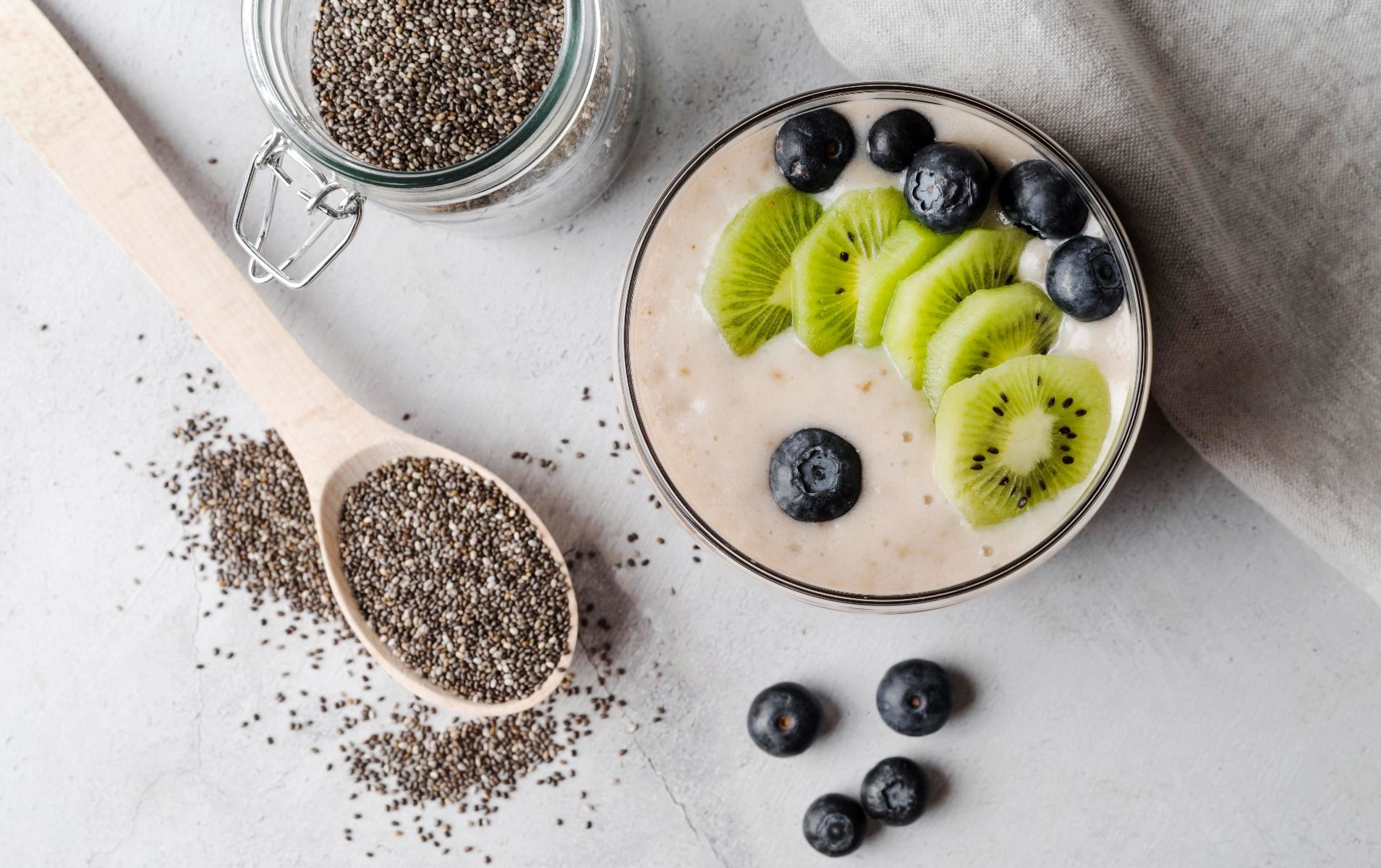
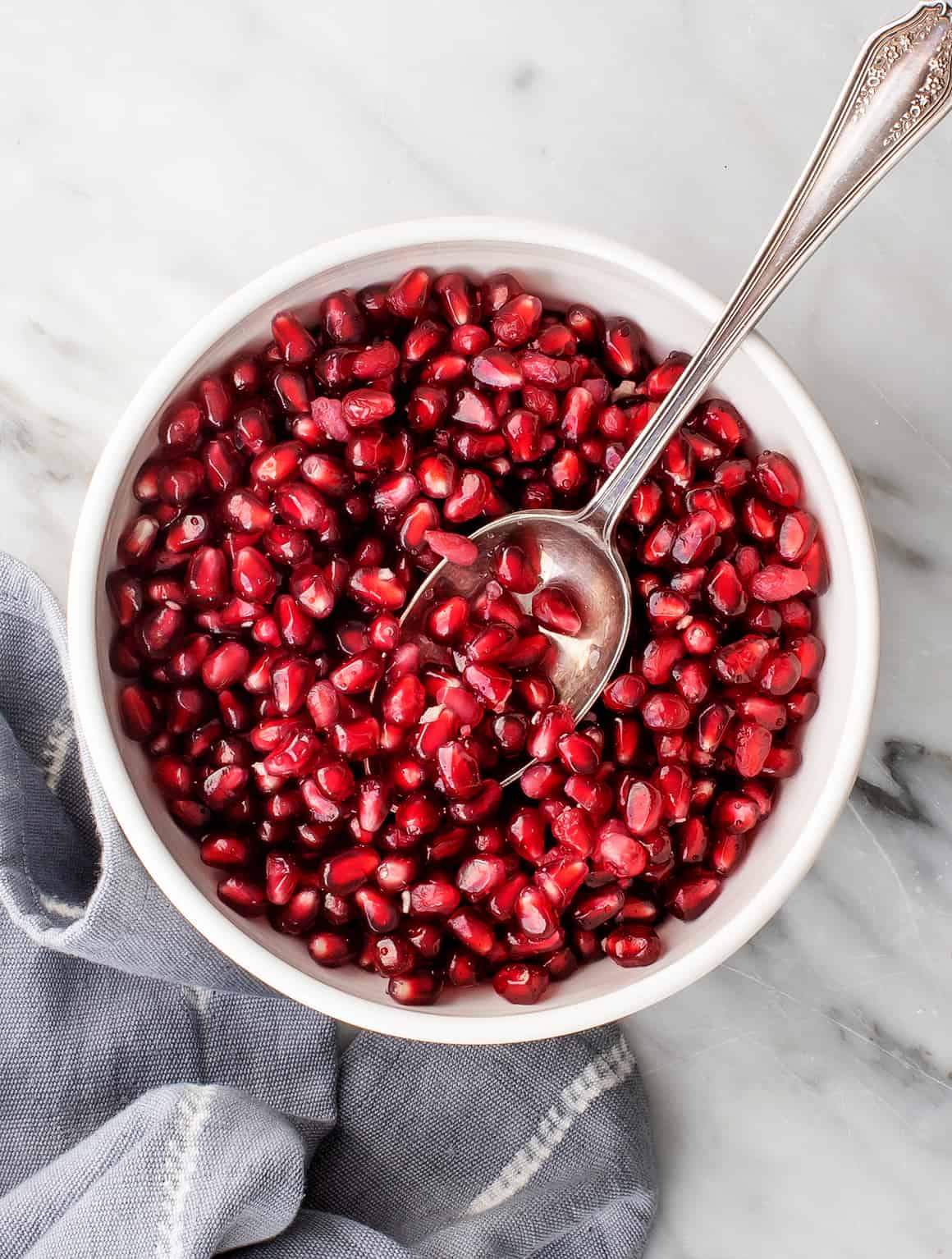
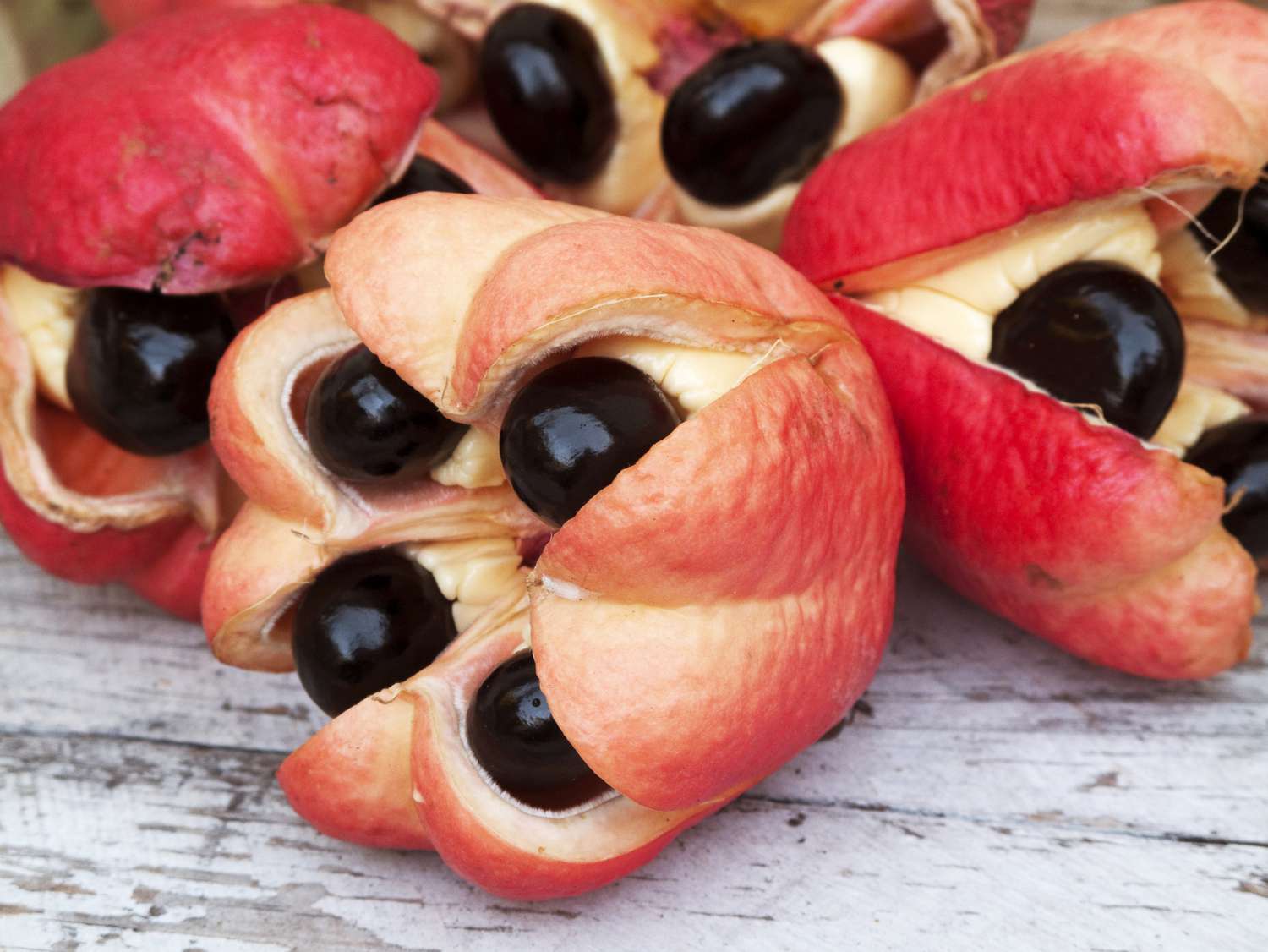

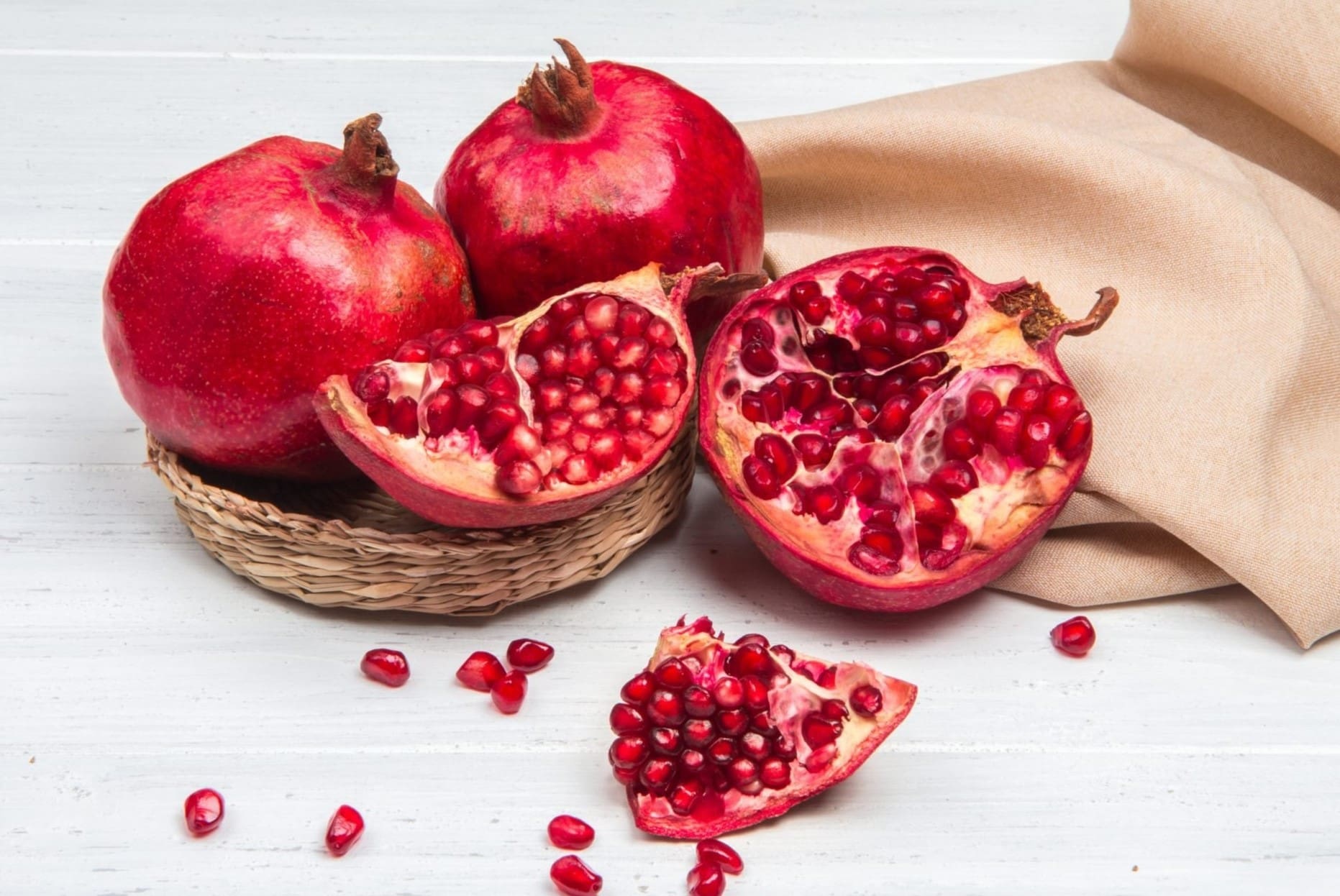
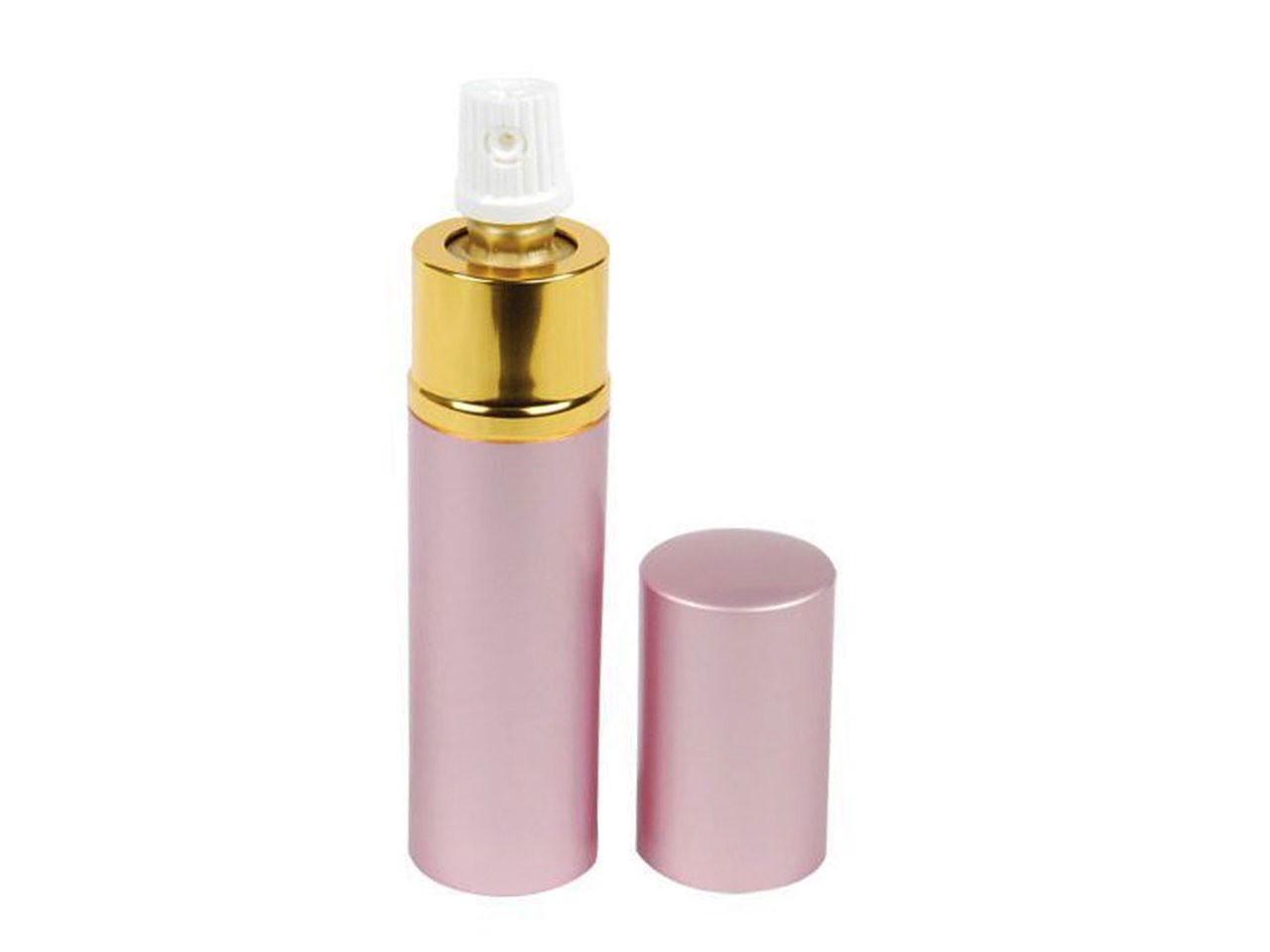

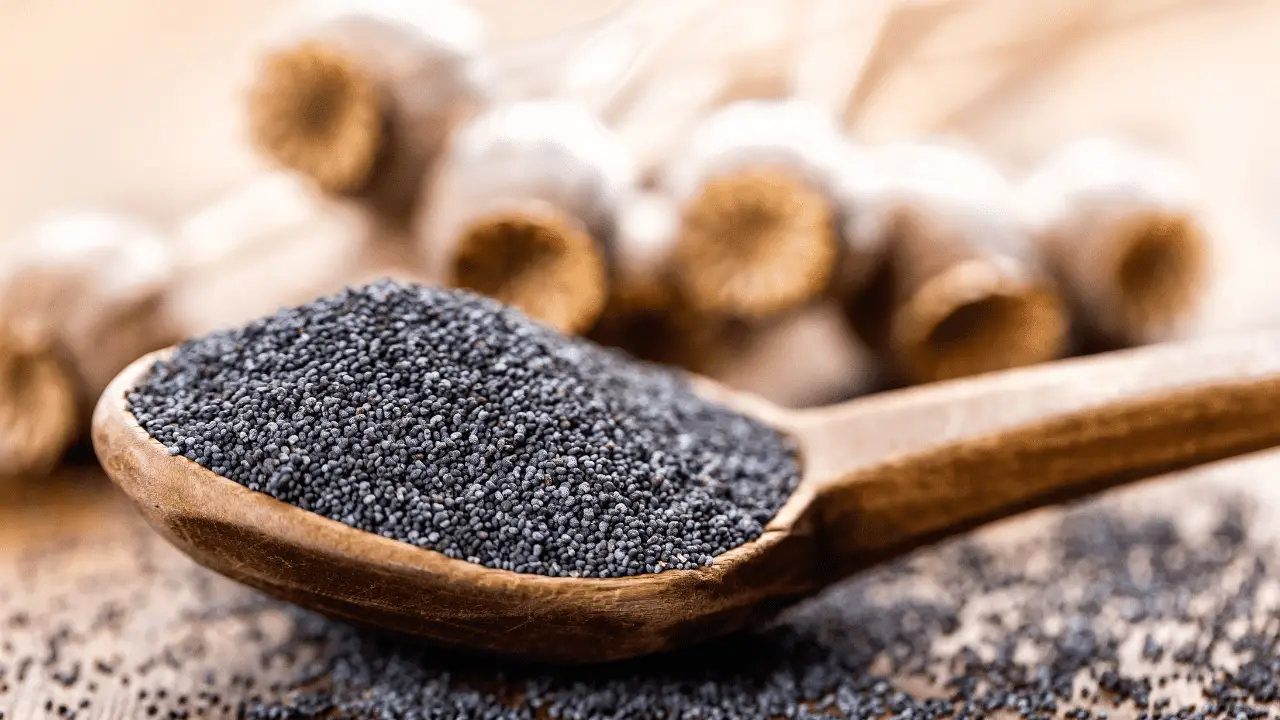
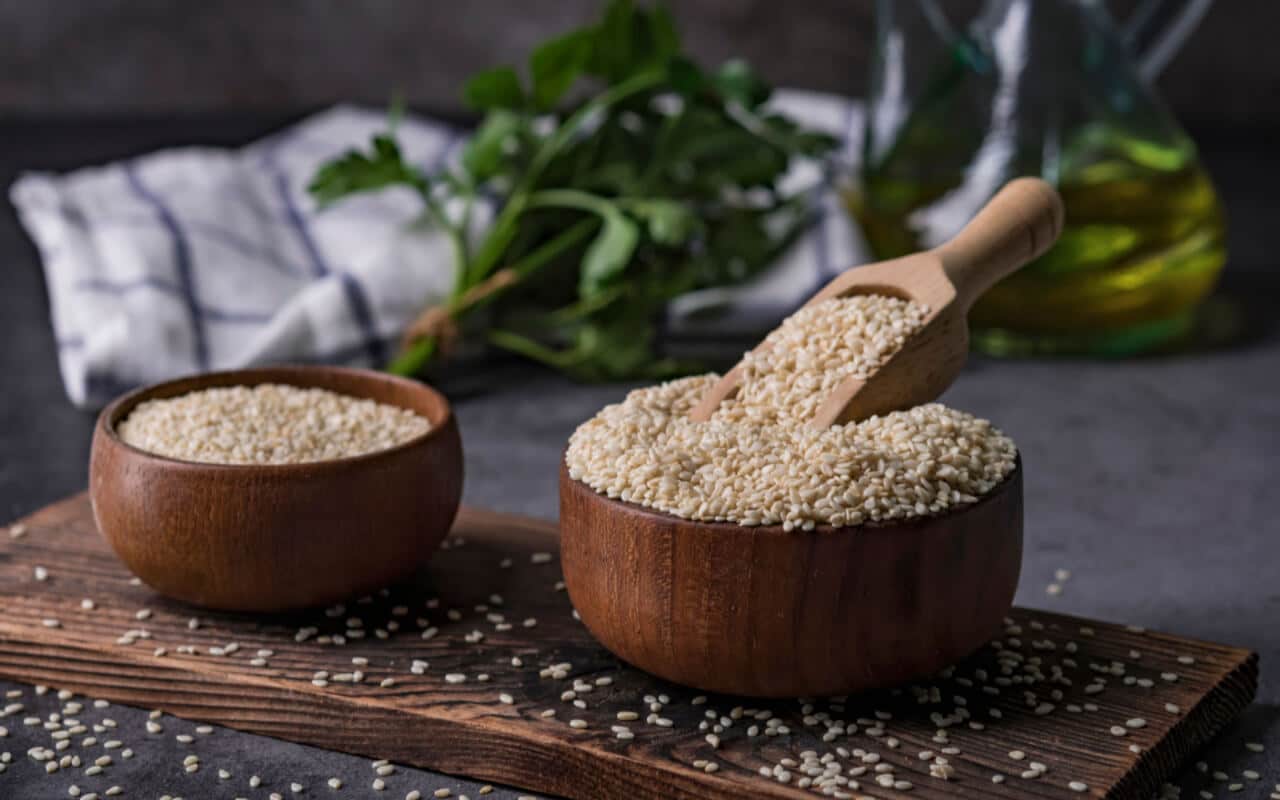
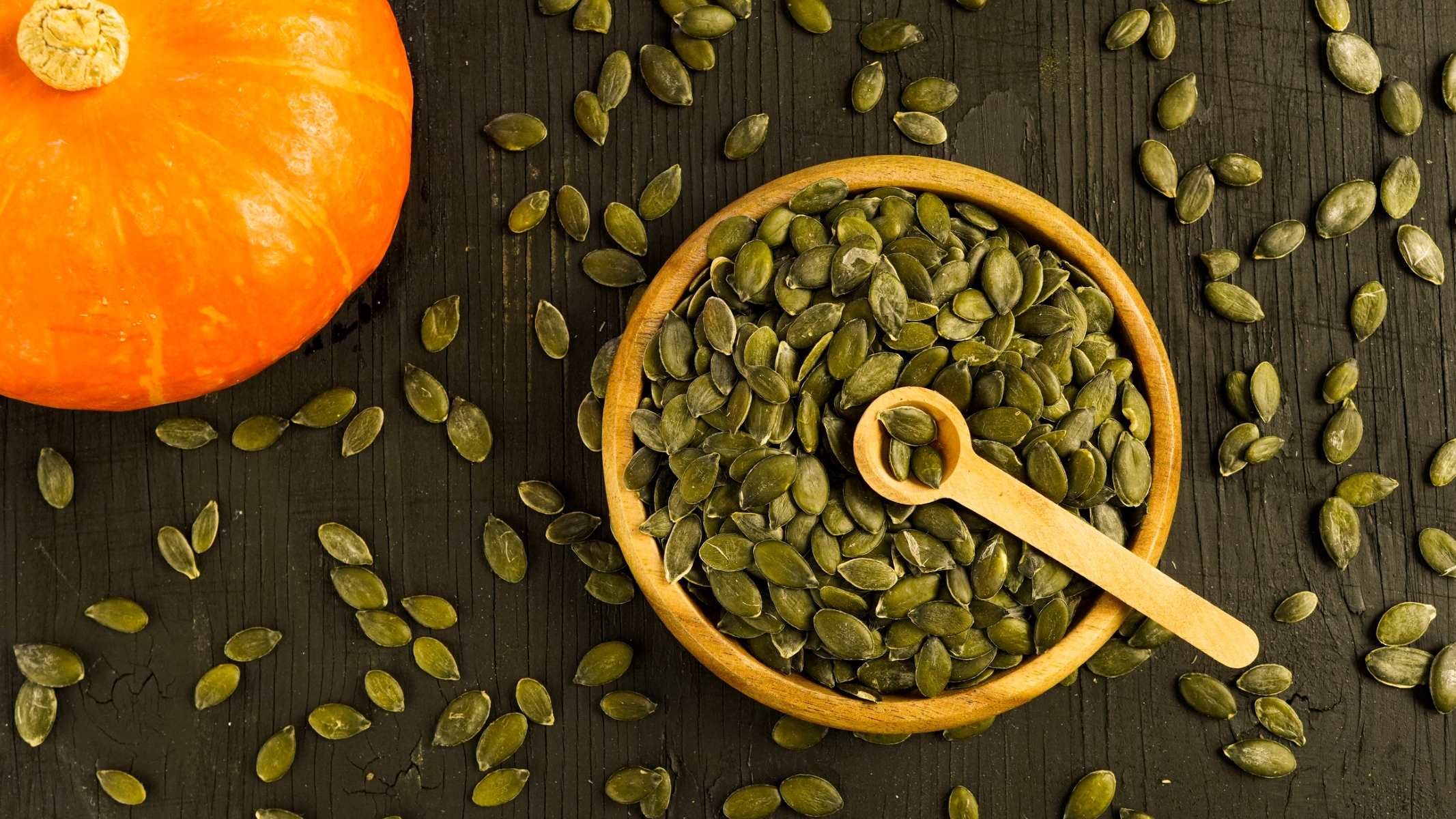
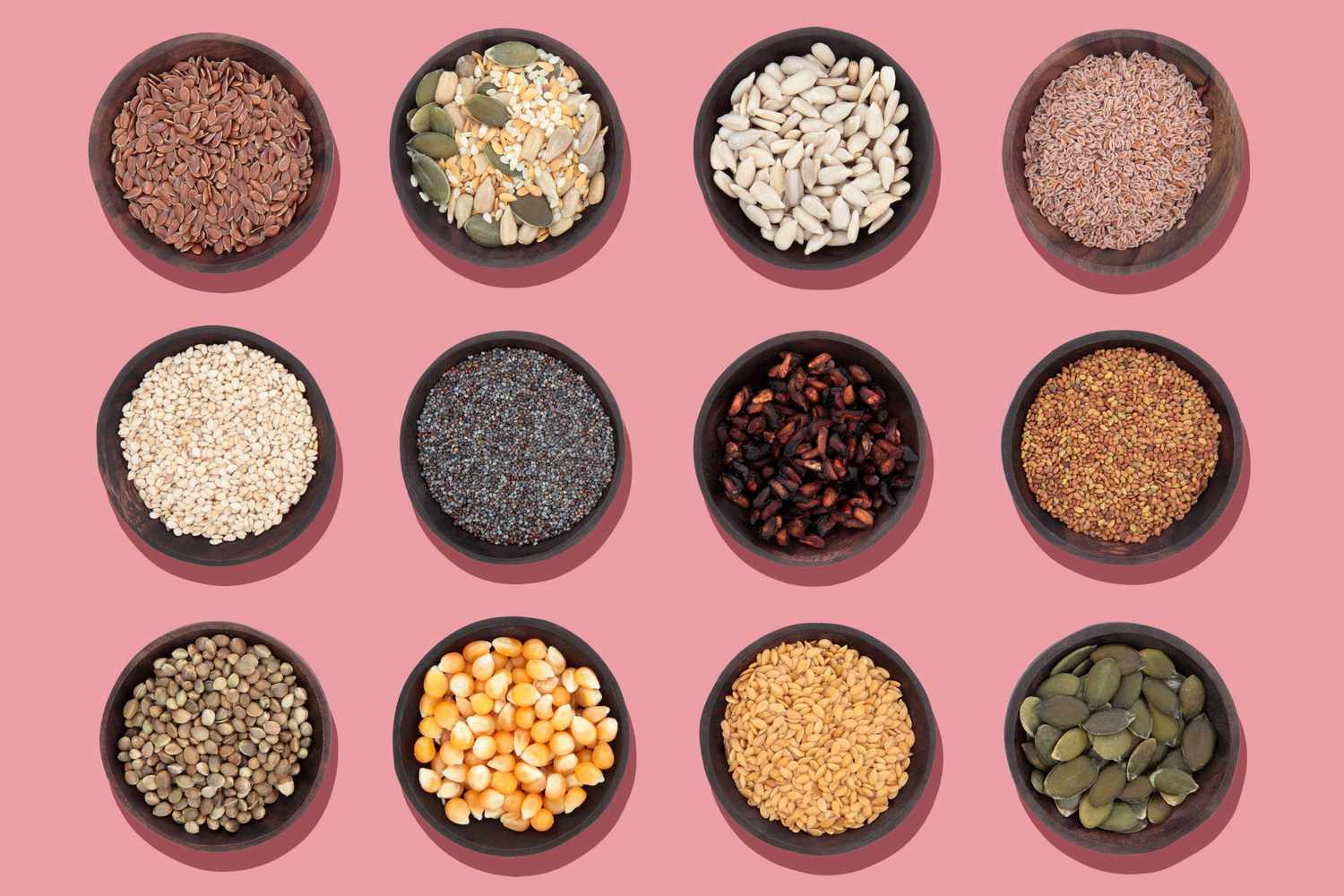
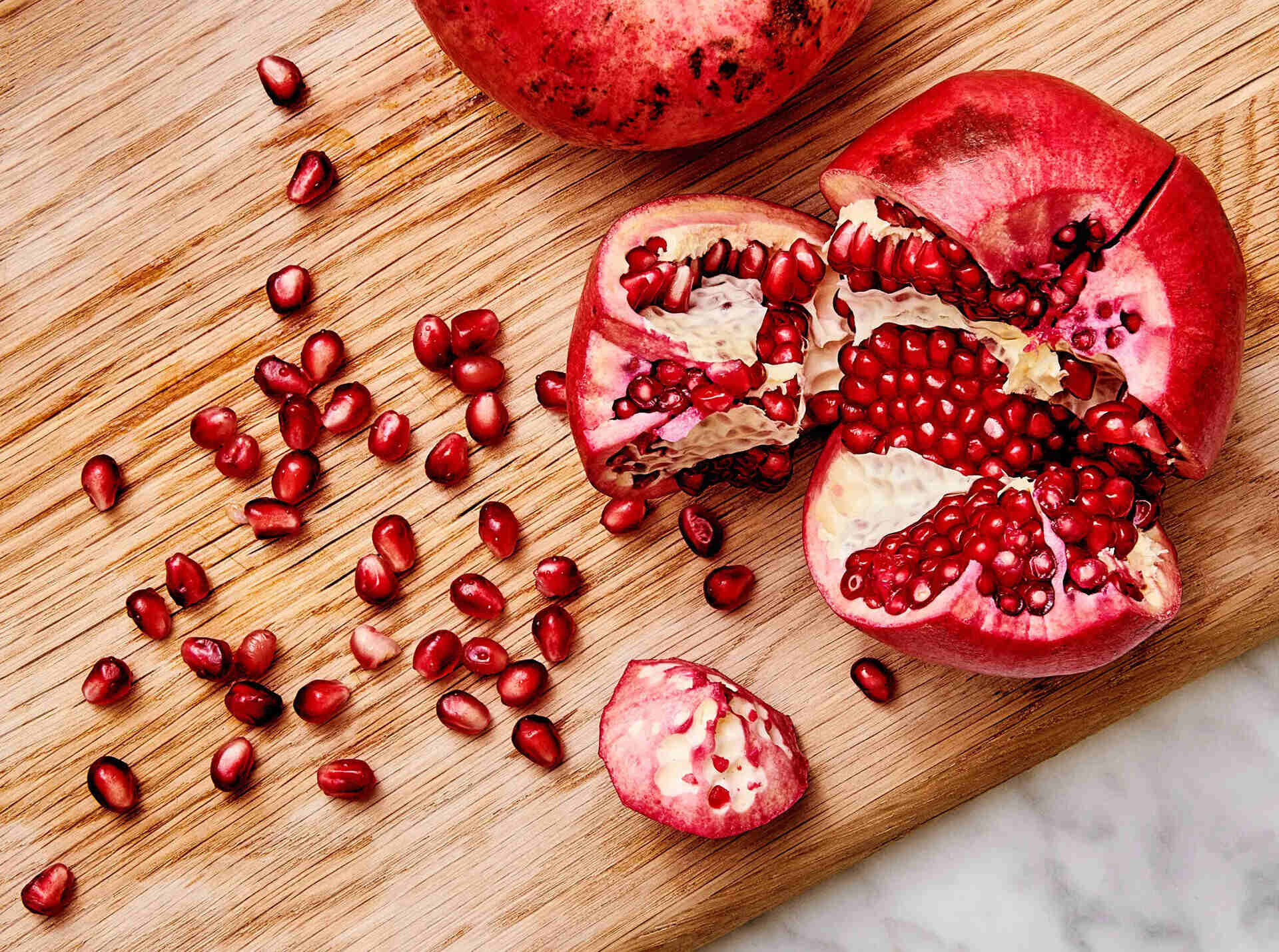

0 thoughts on “What Happens When You Eat Pomegranate Seeds”